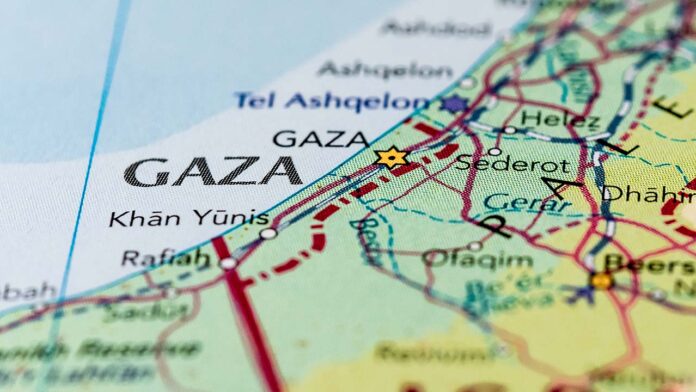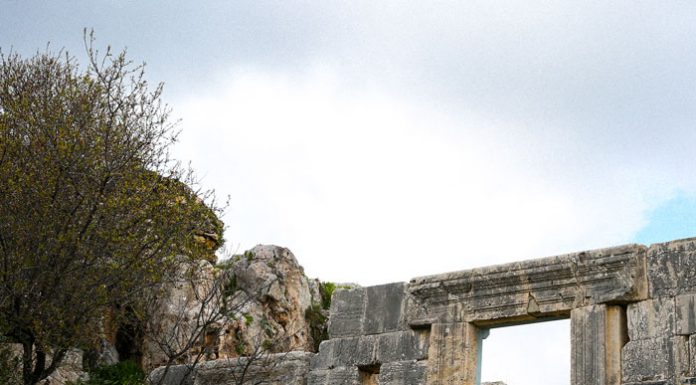
It’s de rigueur in political and media circles, when addressing Hamas’ most recent display of depravity, to note something or other along the lines of “but of course, the average Gazan doesn’t endorse Hamas…”
That contention has long stirred a question in my mind.
Hamas’ reign in Gaza has resulted in untold misery for its residents. Funds and material donated by various countries and groups, intended for the betterment of residents’ lives, have routinely been hijacked to build rockets and tunnels from which to attack Israelis.
Most Gazans, moreover, according to numerous polls, consider their rulers to be corrupt. Terrible death and destruction have resulted from Hamas attacks on Israel (both when the terrorists’ missiles fall short, as happened with an Islamic Jihad rocket in the recent carnage at al-Ahli Hospital, as well as when Israel retaliates for assaults on her citizens, which it can rightly be expected to do).
Executions of Gazan citizens for things like land sales to Israelis, for (real or imagined) acts of treason and for an assortment of “crimes against Islamic law” have taken place with some regularity.
So why, I’ve wondered, hasn’t the Gazan populace asserted itself, risen up to at least attempt to overthrow the Hamas regime and replace it with what one would assume the people want, some sort of representative and responsible government?
Part of the answer may be simple lack of courage, or, at least, fear of failing and suffering the inevitable consequences of failing to overthrow a dictatorship that has no respect for human life. Rebels would be subject to the same malignity with which Hamas treats Israelis.
A recent poll, though, provides what may be a more essential—and more disturbing —reason for the Gazan citizenry’s reluctance to attempt to create regime change.
The Washington Institute is a think tank whose board of advisors includes people like Henry Kissinger, Joseph Lieberman, Martin Peretz, Richard Perle and Condoleezza Rice.
It commissioned the recent survey, which was conducted by the Palestinian Center for Public Opinion. The effort involved face-to-face interviews with representative samples of 1,000 citizens in Arab countries and at least 500 residents each in the West Bank, Gaza, and the Arab sector of the Ir Ha’atikah. And it was conducted back in July, in the wake of a Hamas breaking of a fairly long ceasefire agreement.
Somewhat encouragingly, 62% of Gazans interviewed supported, in contrast to what Hamas had done, maintaining a ceasefire, and fully half maintained that “Hamas should stop calling for Israel’s destruction, and instead accept a permanent two-state solution based on the 1967 borders.”
Of course, fully half, too, disagreed with that proposition, which is less than encouraging.
And entirely discouraging was the poll’s finding that 57% of Gazans express at least a somewhat positive opinion of Hamas, despite their knowledge of their rulers’ culture of corruption and ruthless violence.
What’s more, and more disturbing still, those enjoying the most widespread popular support in Gaza are terrorist groups like Islamic Jihad (considered even more extreme than Hamas) and (Hamas-funded) Lion’s Den.
Approximately three quarters of Gazans express support for both groups, including 40% who see the murderous Shechem-based Lion’s Den gang in a “very positive” light.
Three quarters.
More than half of the Gazan population, it might also be noted, according to the poll, views Iran as either a “friend of the country” (29%) or a security partner (28%).
What all that says is that, whatever misgivings most Gazans may have about Hamas, the terrorist group’s vicious hatred of Israel—and Jews—is not among them. The average Gazan might prefer that Hamas be replaced—but only with another violent, hateful, malevolent gang of murderous fiends.
The optimistic part of me tries to envision younger Gazans having less malevolent designs than their elders.
The realistic part of me, though, painfully aware of the relentless hateful lies fed to Gazan youth, conjures a different vision.
To read more, subscribe to Ami




















